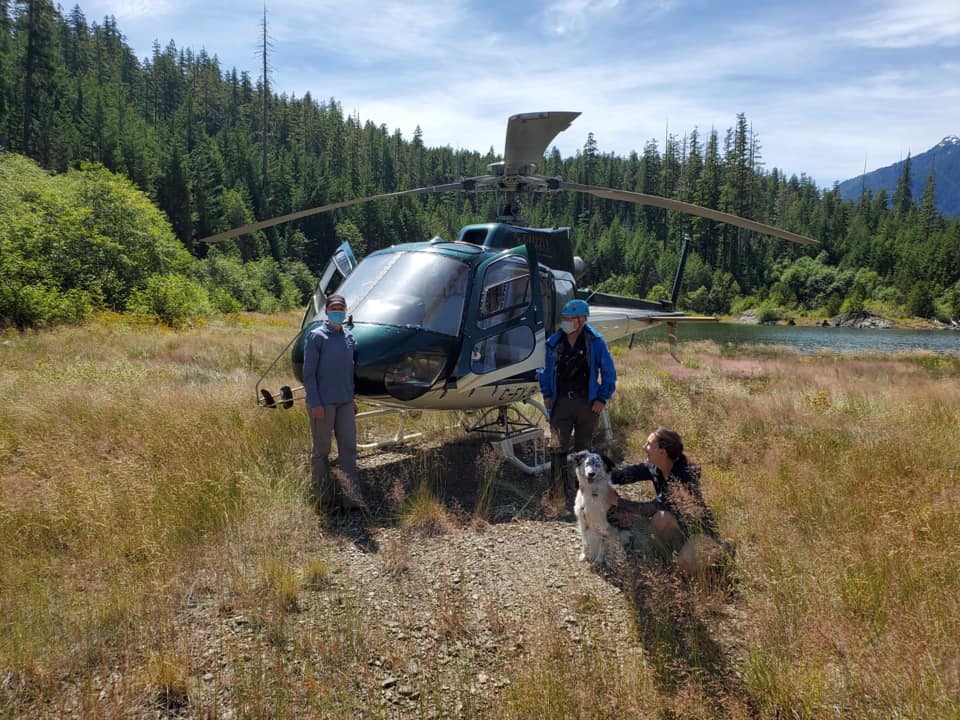It’s been a busy couple days for Campbell River Search and Rescue.
Since Friday, it responded to four separate calls.
It received a report of an abandoned tent at the San Josef Bay campsite near Cape Scott Park on Friday night.
A group of two were “overdue” from the campsite and early Saturday morning, CRSAR members flew to the area and began a search near Mount St. Patrick.
“The pair was located and returned safely to their campsite with no injuries,” says CRSAR manager Grant Cromer.
A second report came in Sunday morning after a lone hiker’s dog needed assistance on Flower Ridge in Strathcona Provincial Park.
The dog had become injured during their hike on the trail and was unable to continue.
READ MORE: Campbell River SAR, Grizzly Helicopters team up to rescue injured dog from trail
“In cases like this, we are granted permission by the province to rescue animals,” Cromer says. “There is no personnel or equipment reimbursement, but we receive work safe and liability insurance to assist in animal rescues.”
Thanks to the donation of helicopter time by Grizzly Helicopters, two CRSAR members were able to fly in, locate the hiker and her dog, and bring them back out to their vehicle.
Later that night, a third report came in of a potentially stranded hiker on Iceberg Lake in Strathcona Provincial Park.
“The report from people using the backcountry was that it appeared that a person was stuck in the middle of Iceberg Lake on a snow/ice patch and was unable to proceed or retreat,” Cromer says.
“Early Monday morning, we flew an alpine rescue team in to assess but it was determined that the reported person was actually a rock that had melted out from the snow and appeared from a distance to be a human-shaped figure.”
Though it was a “false alarm,” Cromer says CRSAR members are grateful for the report because “if it had been a real person trapped on the lake, it would have been an emergency.”
Then, at around 2:30pm on Monday, a fourth report came in of a female hiker on Quadra Island who “had received a lower limb injury while hiking and was in a location that required a hoist evacuation,” Cromer says.
She was on a remote trail covered with rocky bluffs and heavy timber.
“A prolonged stretcher pack would have been too labour intensive and aggravated the injuries,” Cromer says. “A medical hoist operation was initiated and a hoist rescue team flew in, packaged the subject, and flew her back to the Campbell River Airport where she was handed off to BC Ambulance Service.”
Cromer adds that the Quadra Island Fire Department was also on scene and provided the women with “first responder care.”
“It was a busy four days,” Cromer says. “We had to manage not only the search and rescue components of those events, but also maintained COVID-19 protocols.”
He says personal protective equipment (PPE) helps CRSAR members as they come into contact with strangers who have “unknown health and contact history.”
“We have to wear all the proper PPE even when on SAR calls, and especially in close quarters like helicopters,” Cromer says.




